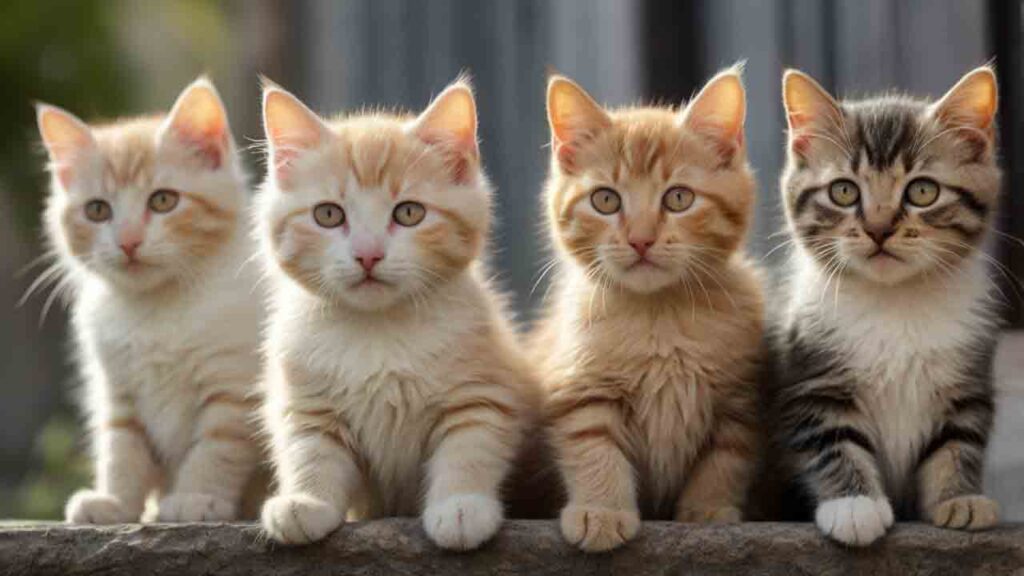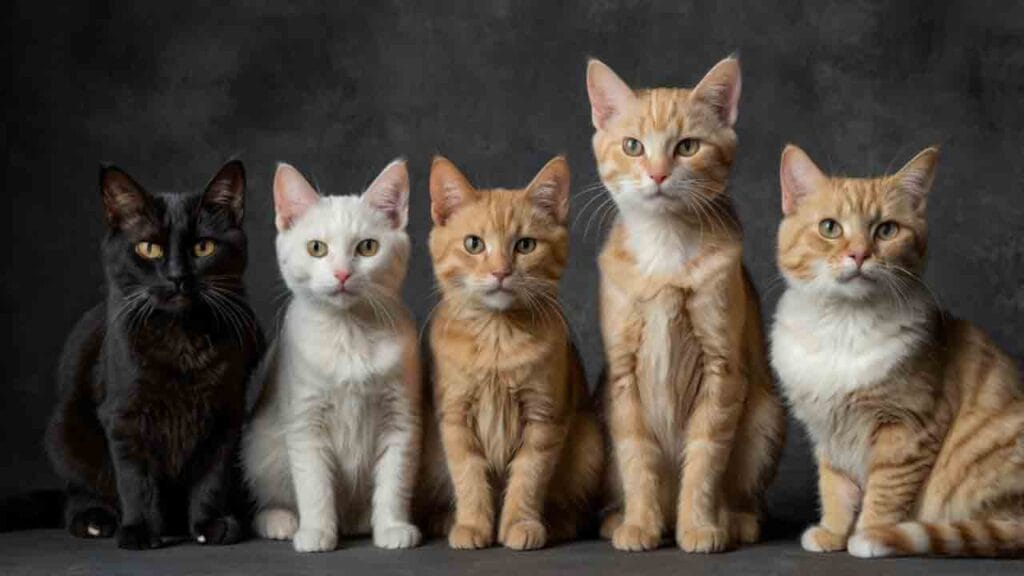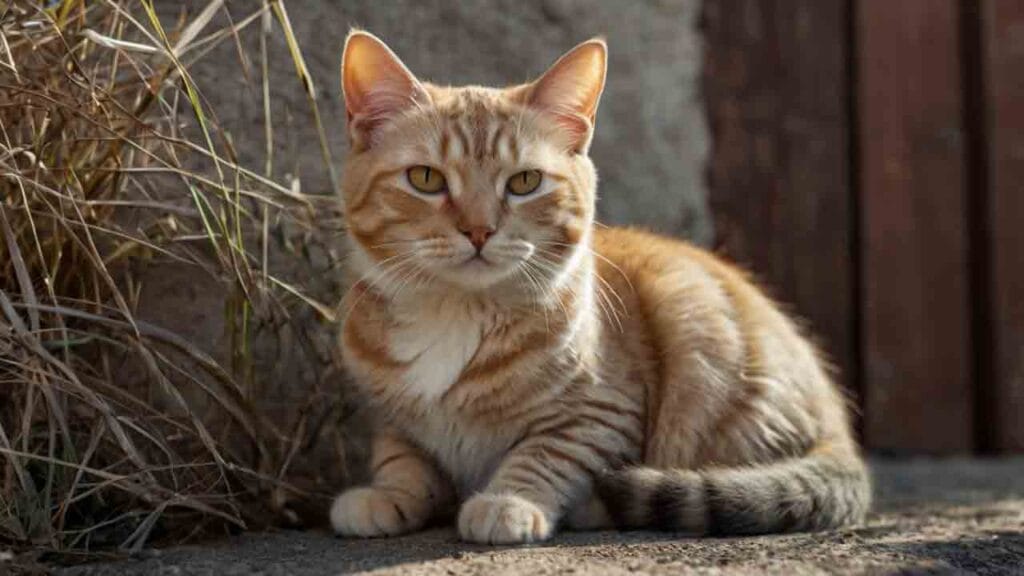There is nothing more loved by pets than cats, they are the most suitable companion to spend a company with and give their love for many years.
How accurate is that though? How long a cat lives can differ based, among other things, on the kinds of things that are going on in its environment, its genetic make and how well it is cared for in general.
In this article, we will look at how long a cat’s life spans, determine factors influencing how long they live, and what you can do to help your cat live as long of a life as possible. So lets see how long do cats live?
The lifespan of domestic cats from the average
The average age of a domestic cat varies from 12 and up to 16 years. The lifespan for the bird depends on several factors including breed, diet and health.
Proper care could mean a few cats make it to 20 years or more. The fewer risks and hazards of being outside mean indoor cats, in particular, tend to live longer.
The average life of housed cats
Indoor cats are safe from the many dangers present outdoors including traffic, predators, and environmental hazards that will drastically reduce a cat’s life expectancy.
Indoor cats typically live to their full potential as indoor cats share a controlled, safe environment and often live to be 15 years or more.
Comparison to Outdoor Cats
On the other hand, outdoor cats are at a much greater risk of injury, illness and accident. And they are more likely to get hit by cars, meet with predators and contract diseases from other animals.
For this reason, outdoor cats usually live shorter lives the average lifespan is 7 years.
What Determines a Cat’s Lifespan?
Several things affect how many years your cat will live.

From their genetics to the care they receive, everything matters to their health and ultimate lifespan.
Genetic characteristics or Breed Characteristics
The lifespan of a cat is largely dependent on breed. Some breeds have certain health problems they tend to have, that could shorten their life.
For example, Persians and Siamese cats may predisposed to some genetic diseases such as heart disease or respiratory problems.
But, mixed breed cats have fewer genetic predispositions to illness and usually live longer, healthier lives.
Diet and Nutrition
A cat’s health relies heavily on having the right nutrition. Feeding a high quality balanced meal gives your cat a better chance at living a longer life and going without weight issues that can cause a wide range of health problems.
Particular nutrients, including protein and taurine, are required for a cat’s well being and may prolong its life.
Medical Care and Vaccinations
It is very important for regular veterinary visits and to give vaccines to avoid other diseases that can shorten the life of a cat.
The feline vaccinations protect against illnesses such as rabies, feline leukemia, and upper respiratory infections which, if left untreated, are all of them very responsible for lowering the lifespan of a cat.
Indoor vs. Outdoor Cats: Longevity Differences
A cat’s indoor or outdoor lifestyle is one of the major determinants of what their normal lifespan should be.

Indoor cats live longer for as many reasons.
A safer, and less risk environment is enjoyed by Indoor cats.
This means they are less likely to hit dangerous traffic, other animals, or bad things like that. Also, indoor cats also receive more consistent care, such as regular feeding, healthcare and living places.
The Risks Outdoor Cats Face
This increases the risk for accidents for cats that spend a lot of time outdoors (accidental hits by a car or cat fights with other animals), or contracting infectious diseases from other animals.
With proper care, their life expectancy is drastically reduced by these hazards.
This topic discusses how lifestyle affects Health and Lifespan.
If you have outdoor cats they may get a more adventurous life, but you have to weigh this against the risks.
Other pet owners may choose to use a combination of both the enclosed outdoor space or supervision of the outdoor time with the cat. But these things still have some risk.
Here we discuss the Role of Genetics in Cat Lifespan.
A great deal of genetics will dictate how long a cat will live. Certain health conditions have a certain breed predisposed to it and can affect the lifespan.
The Effect of Breed on Longevity
However, some cat breeds have a heritage that might make them long lived, and very few domestic shorthair cats are predisposed to health problems.
cats have a greater risk of genetic diseases, such as kidney disease or hypertrophic cardiomyopathy (a heart disease) and consequently have a shorter lifespan.
There are a number of common Genetic Conditions that can shorten a Cat’s Life.
Genetic conditions occur by breed. Some breeds are prone to polycystic kidney disease (PKD) and ultimately leads to kidney failure.
Some other common inherited disorders are heart disease, dental problems and problems in the respiratory system.
Knowing these risks, you can preventively take care of your cat.
Proper Nutrition: A Key to Longevity
A cat’s overall health, and how long they live, can depend a lot on their nutrition. It is important to feed your cat a well balanced diet designed for it.
Importance of a Balanced Diet
A balanced diet is what helps keep a cat’s immune system running, and a healthy weight and it prevents chronic disease like diabetes or arthritis.
A cat’s physical well being depends on nutrients such as protein, fat, vitamins, and minerals.
Tailoring nutrition to meet the life stage and breed of a person or animal.
Cats go through dietary changes as they age. More protein for growth and more calories makes sense for kittens, and low calories and more fiber to avoid obesity is good for senior cats.
Feeding your cat the proper food for his life stage will go a long way to keeping your feline friend healthy and well for many years to come.
Common Food-Related Health Issues
Cats are a big problem and if over fed or lack exercise for good reasons they often get fat.
Overweight cats are more likely to have joint problems, become diabetic or develop heart disease that cuts the length of their lives.
One of the best ways to prolong your cat’s lifespan is simply to make sure they keep their weight in check.
Healthcare and Veterinary Visits: Keeping Your Cat Healthy
Visits to your veterinarian need to be routine for your cat routine visits will help ensure your cat’s health status stays good or prevent issues that could lead to premature death.

Preventative care and regular check ups just aren’t necessary since they would be expensive.
Your vet can help monitor your cat’s health, spot possible problems early and update vaccinations with regular checkups.
Blood tests, dental checks and parasite control can also be performed regularly as part of the exam.
There are common Feline health issues and treatments
Cats are susceptible to kidney disease, diabetes and dental disease. With proper treatment, early management of these conditions can prolong your cat’s life.
Vaccinations and parasite control play a role.
Vaccination is to protect the common disease and parasite control to protect from flea, tick, or worm infection.
They are both important in maintaining their health throughout their life.
Environment Impact on a Cat’s Lifespan
A cat’s environment is their quality of life.
Tap into creating a safe, stimulating and comfortable space, and you can have a dramatic effect on your cat’s health and longevity.
The Safe and Enriching Home Environment
Physical and mental stimulation are something that cats need to stay healthy.
A great way to avoid boredom and obesity is by offering a variety of toys, climbing structures and cozy resting places.
Furthermore, if you have toxic plants or chemicals around your home you need to make sure they are out of your cat’s reach.
Mental and Physical Stimulation: Its Importance
An enriching environment also means giving your cat the ability to display natural behaviors like climbing, scratching and hunting.
Happier and longer life. These activities help keep the mind and the body sharp.
Common Signs of Aging in Cats
As your cat grows older and signs of aging also start showing up, including on both your cat’s physical and mental health.
Physical and Behavioral Changes in Senior Cats
As they get older, senior cats may develop coat, weight and exercise changes. Less playful and more
You may also cry, get vocal, or start to sleep more. They also can have physical changes such as decreased mobility or trouble jumping.
How to Identify When a Cat Is Entering Its Senior Years
Cats are seniors by the time they’re 7 years old or so. Of course, signs of aging can vary.
However, regular veterinary visits can help monitor these changes and make sure that as your cat ages their health remains good.
How to Help Your Cat Live a Longer, Healthier Life
The ideas and knowledge I gathered into this chapter, so that you don’t have to. Maximizing your cat’s life span means providing the best care possible.
Caring for Senior Cats Best Practices
A senior cat’s diet, exercise and health care needs need to be changed.
If the environment is clean and free of hassle, food and water are easy to get at, and the bedding is more comfortable, your cat’s life will be easier and you should notice him feeling better.
Some tips for ensuring a long, full life for your feline friend
The best thing you can do for your cat is to make sure they get to stay on top of their healthcare, stay mentally stimulated, and get a lot of love and attention.
Wrap Up On How Long Do Cats Live?
A cat’s lifespan is determined by many things, including breed, lifestyle, healthcare and diet. However, the average lifespan of a cat is 12 to 16 years and with proper care many can live past this.
If your cat is endowed with longevity, knowing what it takes to be long lived in feline terms and taking action will help to ensure you have a healthy cat companion for many years.
See More:
- Why Does My Cat Bite Me? – Secret Expert Advice
- Why Do Cats Smell Good? – Unlocking the Mystery
- How to Stop Cats from Knocking on Doors?
- What B Vitamin is Good for Cats with Allergies?
- Can Cats Eat Dog Food? A Pet Owner’s best solutions
FAQ: How Long Do Cats Live?
Q1: how long do most indoor cats live?
Ans: Indoor cats live 10-15 years generally. we could not predict sometime cats live morethan 25 years. Outside cats live shoter then indoor cats live beacuse of health concern and accident and attack from some other animal.
q2: the oldest cat to ever live?
Ans: 38 years old and 3 days living texas cat world recorded one. This is oldest cat living cat ever as per record.
q3: what breed of cat lives the longest?
Ans: My opinion Ragdoll cats, Persian cat, Burmese cats, Russian blue cats, Bombay cats, Egyptian mau.
q4: persian cat lifespan?
Ans: It is not accurate but average of life of persiona cat is 10 -15 years. All cats life span depend of health and nutrition and lifestyle of curcumstance.
q5: what age are cats considered old?
Ans: Above 10 years old cats we consider this is old or aged cat.
